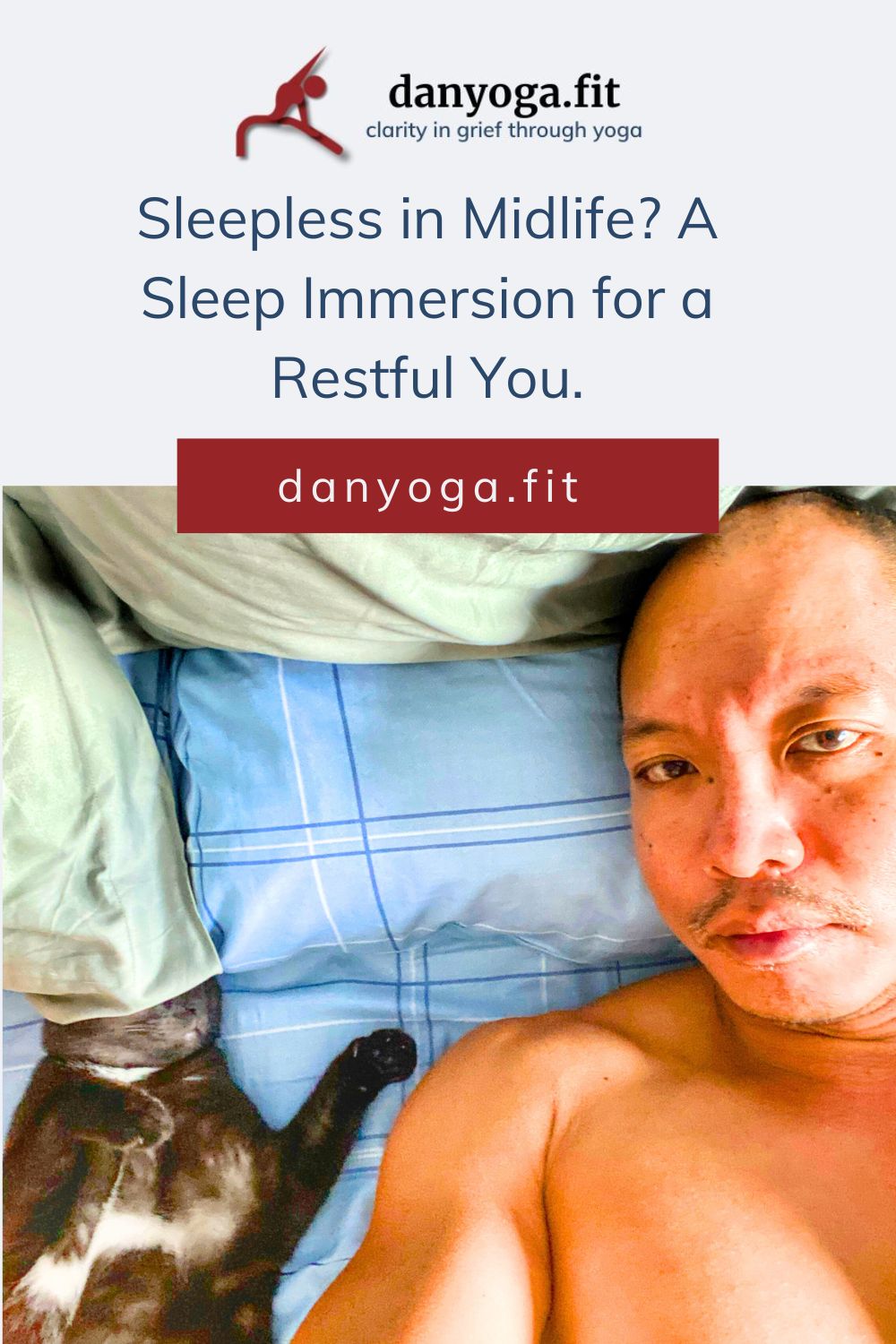As we enter midlife, the quality of our sleep often takes a nosedive. Between juggling work, family, and personal commitments, prioritising sleep can feel like a luxury we simply don’t have.
Yet, a good night’s rest isn’t just about feeling refreshed – it’s crucial for our physical and mental wellbeing. This blog post explores the concept of sleep immersion, a holistic approach to improving sleep quality.

We’ll delve into the reasons why sleep becomes more challenging in midlife, explore various sleep immersion techniques, and discover how practices like yoga, meditation, and breathwork can contribute to a peaceful slumber.
Why Does Sleep Become More Difficult in Midlife?
Several factors contribute to sleep disruption in midlife adults:
- Hormonal Changes: The natural decline in estrogen and progesterone in women and testosterone in men may possibly disrupt sleep cycles.
- Increased Stress: Work pressures, family responsibilities, and the anxieties of ageing can all contribute to elevated stress levels, making it difficult to unwind and fall asleep.
- Medical Conditions: Conditions like sleep apnea, chronic pain, and restless leg syndrome can significantly impact sleep quality.
- Lifestyle Habits: Inconsistent sleep schedules, excessive caffeine or alcohol intake, and screen time before bed can all disrupt sleep patterns.
Understanding these challenges is the first step towards creating a sleep haven in your midlife years.
Sleep Immersion: Cultivating a Restful Environment.
Your sleep immersion goes beyond simply counting sheep. It is about creating a sleep environment that promotes relaxation and supports a healthy sleep cycle. Here are some key aspects to consider:
- Optimise Your Sleep Sanctuary: Create a cool, dark, and quiet bedroom that’s conducive to sleep. Invest in blackout curtains, a comfortable mattress, and pillows that provide proper neck support.
- Establish a Consistent Sleep Schedule: Go to bed and wake up at the same time each day, even on weekends. This helps regulate your body’s natural sleep-wake cycle (circadian rhythm).
- Develop a Relaxing Bedtime Routine: Wind down before bed with calming activities like taking a warm bath, reading a book, or practicing gentle stretches. Avoid screen time for at least an hour before bed, as the blue light emitted from electronic devices can interfere with sleep.
Beyond the Bedroom: Practices for Good Sleep.
Here are some practices that can promote relaxation and prepare your body for restful sleep before bedtime:
- Yoga: Yoga poses can improve flexibility, reduce stress, and promote relaxation, all of which contribute to better sleep. Gentle yoga practices like restorative yoga and Yin yoga can be particularly beneficial for midlife adults.
- Meditation: Meditation helps quiet the mind and reduce stress hormones like cortisol, creating a state of calmness conducive to sleep. Mindfulness meditation practices like focusing on your breath can be especially effective.

- Breathwork: Deep breathing exercises can activate the parasympathetic nervous system, also known as the “rest and digest” system, leading to a state of relaxation that promotes sleep.
- Reiki: This energy healing practice is said to promote relaxation and well-being, which can indirectly improve sleep quality.
Remember, consistency is key when incorporating these practices into your routine.
Embrace Sleep Immersion for a Well-Rested You.
Sleep is a cornerstone of good health in midlife. By creating a sleep-supportive environment and incorporating practices like yoga, meditation, and breathwork, you can cultivate a state of sleep immersion that paves the way for a peaceful night’s rest. Prioritizing sleep is an investment in your overall well-being, allowing you to wake up feeling refreshed and ready to tackle all that life throws your way. So, take a deep breath, dim the lights, and create your own personal sleep sanctuary – your well-rested midlife self will thank you for it.

